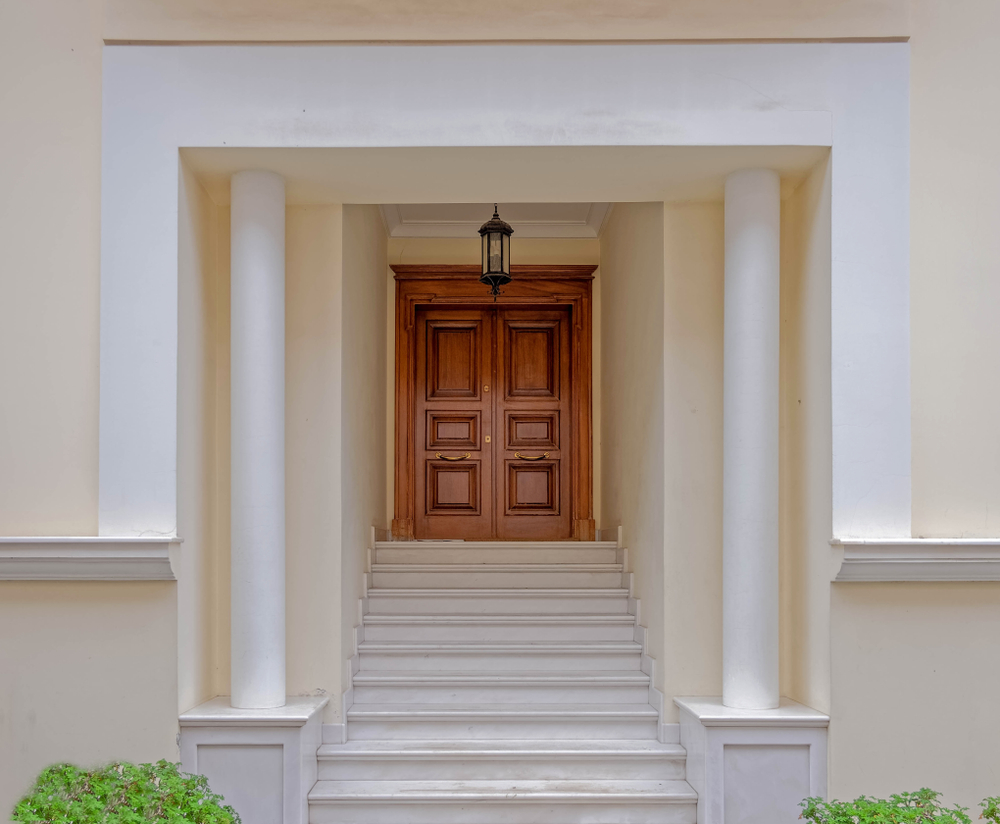When choosing doors for your home, understanding the differences between solid wood doors and composite doors is crucial. Each type offers unique benefits and drawbacks, and selecting the right one depends on your specific needs, style preferences, and budget. In this guide, we delve into the key distinctions between solid wood and composite doors to help you make an informed decision.
What Are Solid Wood Doors?
Solid wood doors are crafted entirely from natural wood. Depending on the wood species, such as oak, maple, or mahogany, these doors exude elegance and timeless appeal.
Advantages of Solid Wood Doors
- Aesthetic Appeal
Solid wood doors are unmatched in their beauty, offering a rich, natural grain that complements traditional and modern interiors alike. - Durability
Properly maintained, solid wood doors can last for decades. Their strength makes them resistant to daily wear and tear. - Customizability
These doors can be easily tailored with different stains, paints, or finishes to match your decor. - Insulation Properties
Solid wood has excellent insulating properties, providing both thermal and sound insulation.
Disadvantages of Solid Wood Doors
- Cost
Due to their premium materials, solid wood doors are often more expensive than alternatives. - Susceptibility to Weather Changes
They can expand, warp, or contract with temperature and humidity fluctuations if not sealed properly. - Weight
Solid wood doors are heavy, requiring strong hinges and more effort during installation.
What Are Composite Doors?
Composite doors are engineered using a combination of materials such as wood, plastic, and insulating foam. These doors are designed to mimic the appearance of solid wood while offering enhanced performance.
Advantages of Composite Doors
- Weather Resistance
Composite doors resist warping, swelling, and cracking, making them ideal for varying climates. - Low Maintenance
Unlike solid wood doors, composite doors require minimal upkeep. Regular cleaning is sufficient to keep them looking new. - Energy Efficiency
Their layered construction provides superior insulation, reducing heat loss and energy bills. - Affordability
While offering high performance, composite doors are generally more cost-effective than solid wood options. - Security Features
Many composite doors come with advanced locking systems, enhancing home security.
Disadvantages of Composite Doors
- Aesthetic Limitations
Although they mimic wood, composite doors may lack the authentic warmth and character of natural timber. - Lifespan
While durable, composite doors may not last as long as solid wood doors when exposed to extreme conditions over time.
Key Differences Between Solid Wood and Composite Doors
Material Composition
- Solid Wood Doors: Made from a single material, usually natural hardwood or softwood.
- Composite Doors: Constructed from a blend of materials, often including a timber core, uPVC, and foam.
Appearance
- Solid Wood Doors: Provide a rich, authentic look with natural grain patterns.
- Composite Doors: Designed to replicate wood but lack the depth and texture of genuine timber.
Cost
- Solid Wood Doors: Typically more expensive due to the quality of materials.
- Composite Doors: Offer a cost-effective alternative with good performance characteristics.
Durability and Maintenance
- Solid Wood Doors: Require regular sealing and maintenance to prevent weather damage.
- Composite Doors: Low maintenance and more resistant to weather changes.
Thermal Insulation
- Solid Wood Doors: Offer decent insulation but can lose efficiency if not sealed properly.
- Composite Doors: Provide excellent thermal performance thanks to their multi-layered design.
Which Door Should You Choose?
The decision between solid wood and composite doors ultimately comes down to personal preference, budget, and the specific requirements of your home.
Choose Solid Wood Doors If:
- You prioritize aesthetics and natural materials.
- You’re willing to invest in higher maintenance for long-term durability.
- Your home features a traditional or luxury design scheme.
Choose Composite Doors If:
- You seek a cost-effective, low-maintenance option.
- Weather resistance and energy efficiency are key concerns.
- Security and modern functionality are important to you.
Conclusion
Both solid wood and composite doors have their distinct advantages, making them suitable for different situations. While solid wood doors offer timeless beauty and robust durability, composite doors provide practical benefits like affordability, low maintenance, and enhanced energy efficiency. Evaluating your specific needs and home environment will help you make the best choice.
At Knockety, we are the best seller for both solid wood doors and composite doors, offering unmatched quality and designs to suit every home. Our extensive collection ensures you find the perfect door that balances style, durability, and functionality.

